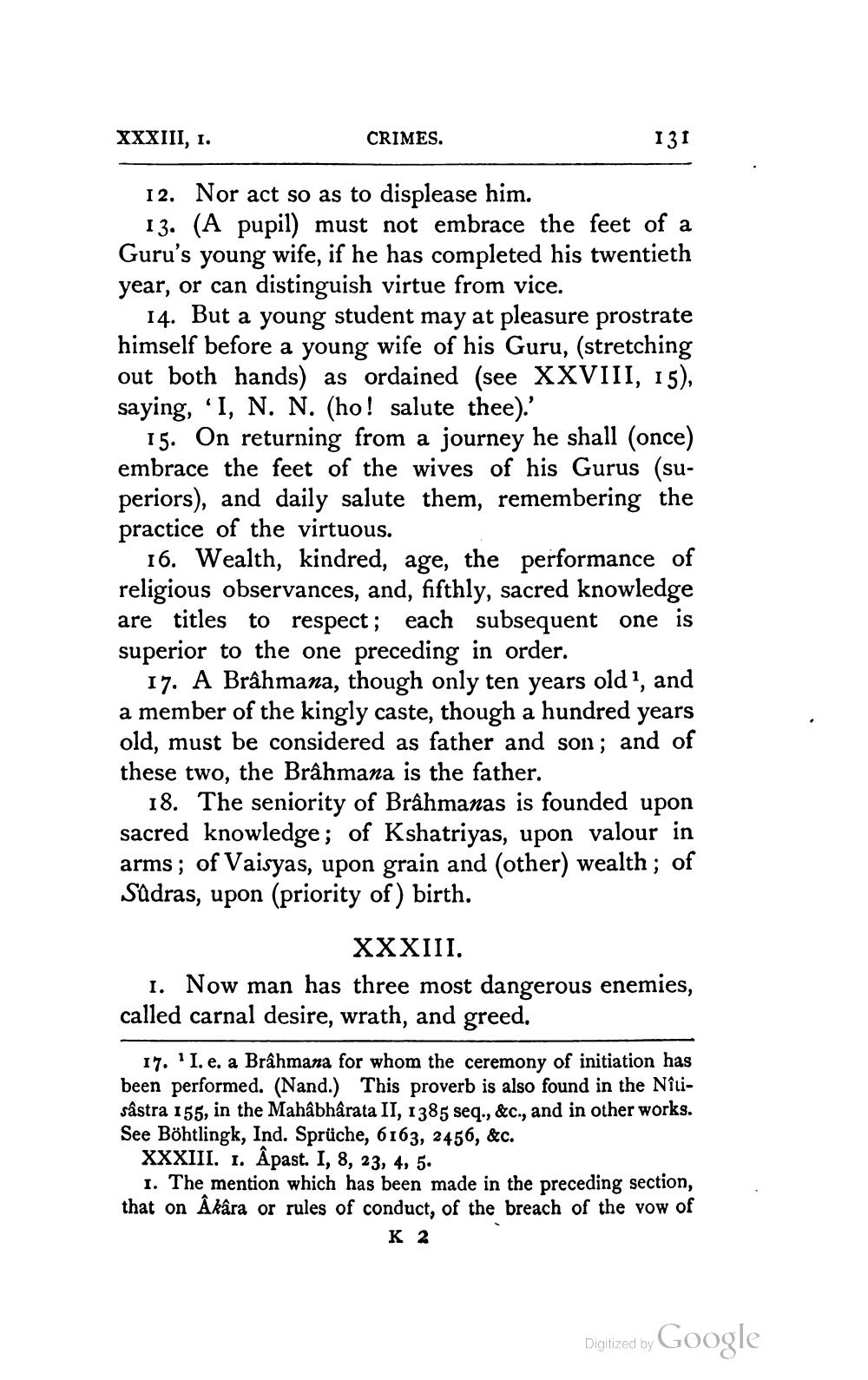________________
XXXIII, 1.
CRIMES.
131
12. Nor act so as to displease him.
13. (A pupil) must not embrace the feet of a Guru's young wife, if he has completed his twentieth year, or can distinguish virtue from vice.
14. But a young student may at pleasure prostrate himself before a young wife of his Guru, (stretching out both hands) as ordained (see XXVIII, 15), saying, 'I, N. N. (ho! salute thee).'
15. On returning from a journey he shall (once) embrace the feet of the wives of his Gurus (superiors), and daily salute them, remembering the practice of the virtuous.
16. Wealth, kindred, age, the performance of religious observances, and, fifthly, sacred knowledge are titles to respect; each subsequent one is superior to the one preceding in order.
17. A Brâhmana, though only ten years old!, and a member of the kingly caste, though a hundred years old, must be considered as father and son; and of these two, the Brâhmana is the father.
18. The seniority of Brahmanas is founded upon sacred knowledge; of Kshatriyas, upon valour in arms; of Vaisyas, upon grain and (other) wealth; of Sudras, upon (priority of) birth.
XXXIII. 1. Now man has three most dangerous enemies, called carnal desire, wrath, and greed.
cr.
17. 11. e, a Brâhmana for whom the ceremony of initiation has been performed. (Nand.) This proverb is also found in the Nîtisastra 155, in the Mahâbhârata II, 1385 seq., &c., and in other works. See Böhtlingk, Ind. Sprüche, 6163, 2456, &c.
XXXIII. 1. Âpast. 1, 8, 23, 4, 5.
1. The mention which has been made in the preceding section, that on â kâra or rules of conduct, of the breach of the vow of
K2
Digitized by
Digitized by Google




